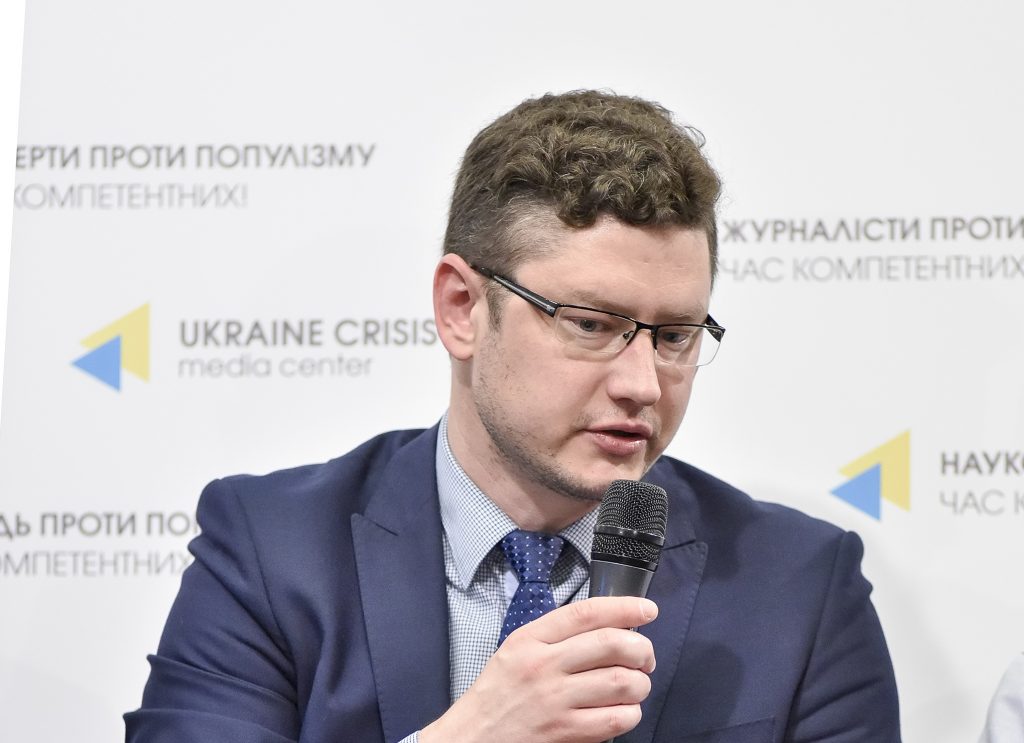The guide-book “Creating bridges for democracy” offers new approaches to training officials at the local level. This was stated by Oleksandr Burmahin, executive director of NGO “Human Rights Platform”, at a press briefing held at Ukraine Crisis Media Center.
The guide-book was issued under the project “Approaches to creating pluralistic decision-making processes at the local level”, which started in 2015. The project is implemented in 9 regions of Ukraine with the support of the German Foreign Office. “We also engaged experts from the regions. […] We have 10 authors who initially worked with focus groups,” said Oksana Kushnir, manager of the DVV International in Ukraine, co-editor of the guide-book “Creating bridges for democracy”.
The guide-book will be useful to journalists, social activists and non-formal education centers for adults.
The program of study under this guide-book consists of 4 blocks: the art of dialogue, decentralization issues, the role of civil society activists on the grounds, and journalistic activity. Kyrylo Yesin, project manager at VOX Ukraine, author of the guide-book “Creating bridges for democracy”, was responsible for the content of the latter. “At this point the country has a very dynamic socio-political environment involving a lot of participants. […] The tendencies of manipulation and populism are currently quite evident. Accordingly, the community is involved in decision-making processes and can influence them,” noted Mr. Yesin.
The community is often not ready to use new management tools effectively. “Most people have paternalistic attitudes in dealing with the authorities. […] We must unite and do our own business and create initiatives,” says Pavlo Timofeev, Melitopol City Council deputy. He provided an example of Melitopol to prove the low activity of the community.
“We are working at different levels. The macrolevel includes supporting educational initiatives at the grassroots level and involving adults in educational projects, while the mesolevel includes our support to organizations,” informed Oleh Smirnov, director of the DVV International in Ukraine. Natalia Bolhovska, project manager, Vinnytsia Press-Club, noted that although local officials understand what is happening, they do not want to share their knowledge. For example, the healthcare reform faced rejection from society because of lack of coverage in the media. “An effective communication system is a very important aspect of the effectiveness of the very reforms,” added Oleksandr Burmagin.
Andrii Strannikov, director of the Institute of Political Education, informed that the topics covered in the guide-book are also pressing for deputies of local councils. “The Institute of Political Education starts its new project – about 40 events in united territorial communities, which will begin in September,” he said.
The guide-book will be distributed free in regions and available at DVV International website in Ukraine in electronic format.




